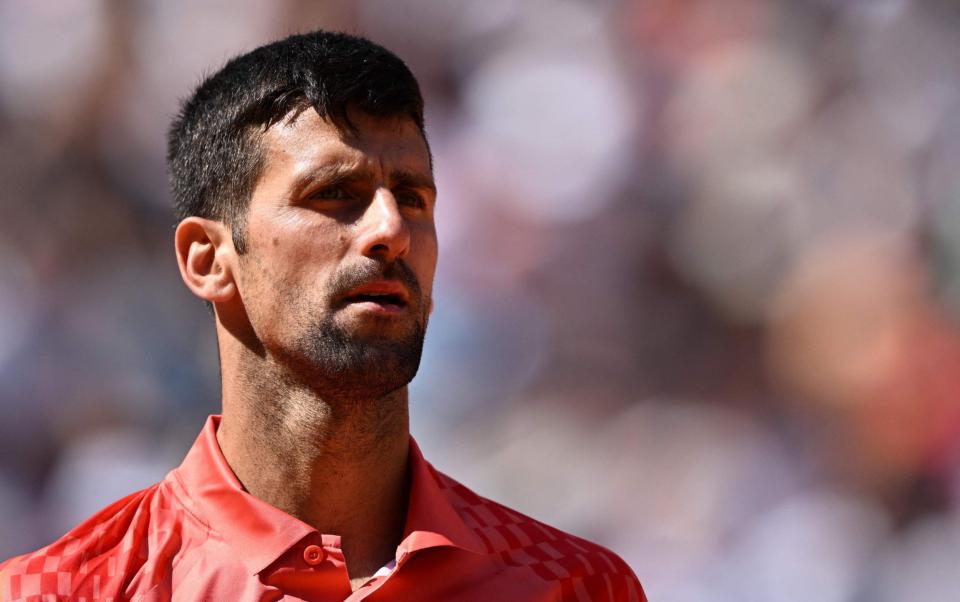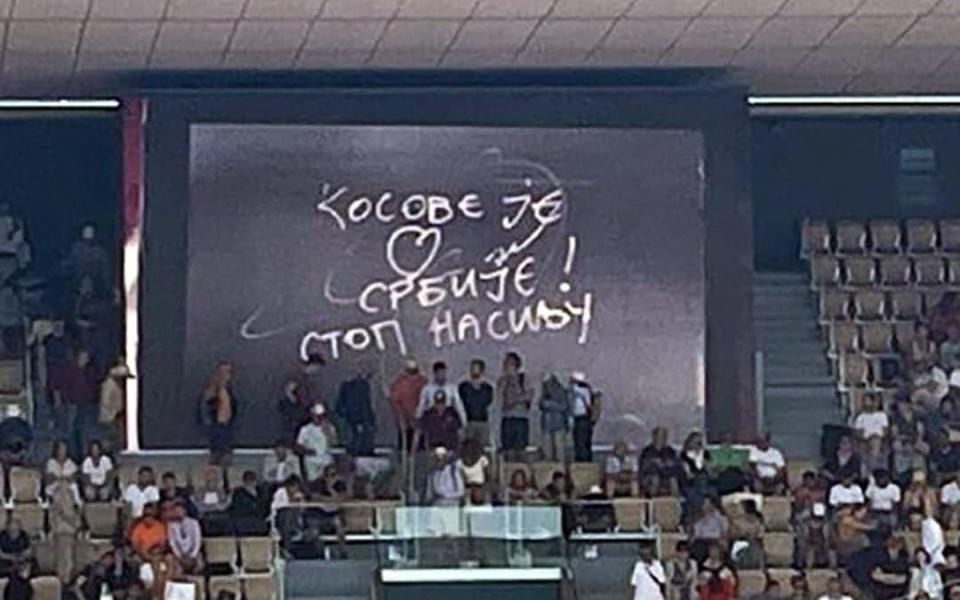Novak Djokovic sparks political storm with provocative 'Kosovo is the heart of Serbia' message

Novak Djokovic sparked controversy at Roland Garros for writing a political statement appearing to deny Kosovo's independence.
Writing on the camera lens after his straight sets win over Aleksandar Kovacevic, Djokovic wrote: "Kosovo is the heart of Serbia. Stop violence."
Kosovo — a former province of Serbia, mainly populated by ethnic Albanians — has been Nato-backed since 1999 and declared independence in 2008.
However Serbia has refused to recognise its statehood and tensions between the two regions have flared in recent days, with several injured in violent clashes between Kosovo’s police, Nato-led peacekeepers and local Serbs.
On Monday, dozens of Nato peacekeepers were hurt after shaven-headed and hooded Serbian men attacked them with batons at a municipal office in the powder keg north of Kosovo.
After his match, Djokovic told Serbian newspaper Blic that he felt "responsible" to speak out.
"I am not a politician and I have no intention of getting into political debates," Djokovic said. "As a Serb, it hurts me a lot what is happening in Kosovo, our people who are expelled from the municipalities. The least I could do is this, I feel responsible as a public figure and the son of a man who was born in Kosovo, I feel the need to show support to all of Serbia.

However, Djokovic's comments provoked a furious backlash from Kosovans on social media.
Djokovic's father, Srdjan, was raised in a small mining town in Kosovo and has expressed similar views to his son in the past.
Earlier this month 22-time major champion Djokovic told Italian newspaper Corriere della Sera that he wanted to go back to Kosovo to baptise his children.
Kosovo's independence has been recognised by over 100 countries, including the UK, as well as sporting bodies including the International Tennis Federation and Fifa.
At the World Cup last December, the Serbian FA was fined €20,230 by Fifa over a banner in its team locker room which depicted Kosovo as part of Serbia.
There is no rule in either the ATP or the ITF Grand Slam rulebooks which specifically blocks players from making political statements. But Djokovic told the Serbian press that he "would do it again", regardless of the consequences.
"I don't know what will happen, I know that there were objections from international journalists, whether they will punish me. I have no reservations, I would do it again. I am against wars and any conflict, I have always expressed this in public.
"This situation with Kosovo is a precedent according to the UN charter and all rights, I am very sorry that we are in the situation we are in. Kosovo is our hearth, our stronghold, the biggest battle took place there, the most important monasteries are located there... There are many reasons, and especially because it is the truth."
Djokovic is no stranger to controversy. In 2008, after his first major win, he recorded a video message for a "Kosovo is Serbia" rally in Belgrade. It was only in January at the Australian Open that he came out in defence of his father, after he was widely criticised for posing for photos with fans holding a Russian flag emblazoned with Vladimir Putin's face.

 Yahoo Sport
Yahoo Sport 





































